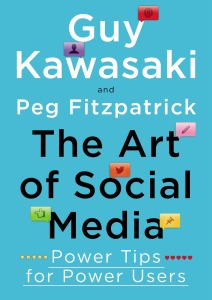
Project management has many paths to success. The old adage “there are many roads to Rome” can be applied to agency project management. However, there are a few common areas where a wrong decision can create a lot more work in the long run. Using some simple guidelines, you can keep your project on the correct path and “heading to Rome” without any setbacks. How well do you follow best practices for agency project management? Here are three questions to ask yourself to determine your agency project management IQ. Note that they’re meant to be tricky, so don’t feel as though you’re doing things wrong. Simple use this to see whether or not your agency project management practices align with the most correct answer. If you need to make changes, think about what the opportunities will be after you better align your project management.
1. What is your communication frequency with your team?
When something needs to be addressed
Weekly
Daily
If you answered b, think again. If you chose a or c, then give yourself a pat on the back. Ideally, you want to be discussing anything that’s changed with your team as soon as is practical. Don’t wait for a progress report meeting or for the end-of-day wrap-up to have the discussion.
As well, you shouldn’t be limiting your contact with the team to when you need to update it on a scope change or something of similar importance. Your team sees you as a leader, so if you’re not visible, your team will lose focus. Be present, be visible, and be in contact with your team, not just about project progress but life in general as well. That doesn’t mean you need to spend an hour each day discussing football scores. It does mean, though, that your presence makes a difference, potentially more than you realize.
2. When do you schedule meetings?
Only when the need arises
With just enough time to prepare for them and still keep my team on its toes
I lay out a meeting timeline before the project starts and adjust as necessary during the project
I don’t hold meetings; I prefer to only have discussions when things change
While you might find a specific application for a or b, the real answer is c. Selecting d could appear to be correct, if you were following along from the first question, but there are a lot of specific situations in which having a meeting on the schedule is necessary. You need to have a predefined schedule for meetings going into the project so that you can regularly have a chance to sit down with your team and discuss important matters.
While a meeting timeline is important, the second clause of the answer is also worth keeping in mind. “Adjust as necessary during the project” means that you shouldn’t wait until your prescheduled meeting to have a discussion if something arises. You shouldn’t adhere to your meeting schedule regardless of any changes. Rather, if things go in a direction you weren’t anticipating earlier, adjust the schedule.
In a way, you need to be both rigid and flexible. Schedule meetings ahead of time and be rigid with expecting attendance and holding to the schedule. But when the scope changes or timelines are moved forward or back, then rigidity will prove to be a downfall. Use your flexibility to adjust your meeting timeline as well.
3. How do you address your stakeholders?
I don’t
Only through email; I prefer to keep things brief
I use the best method as determined by the stakeholders’ preferences themselves
While it was previously stated that there are no wrong answers, you can probably agree that a is not the best choice. Hopefully you picked c and use email when it is desired by the stakeholders. Your stakeholders might be a diverse group, and not all of them have the same preferences for how they’d like to be updated. That’s another consideration, so make sure that you’re addressing them through the proper channels.
Note that while you can deviate from these best practices, it’s often at the expense of efficiency and even your team’s well-being. If you think there is a good reason to go off track (and perhaps, in the long run, you may see greater returns by using good judgment to forge your own way), make sure that you’ve spent some time thinking about all of the possible outcomes.
Business & Finance Articles on Business 2 Community
(102)
Report Post








